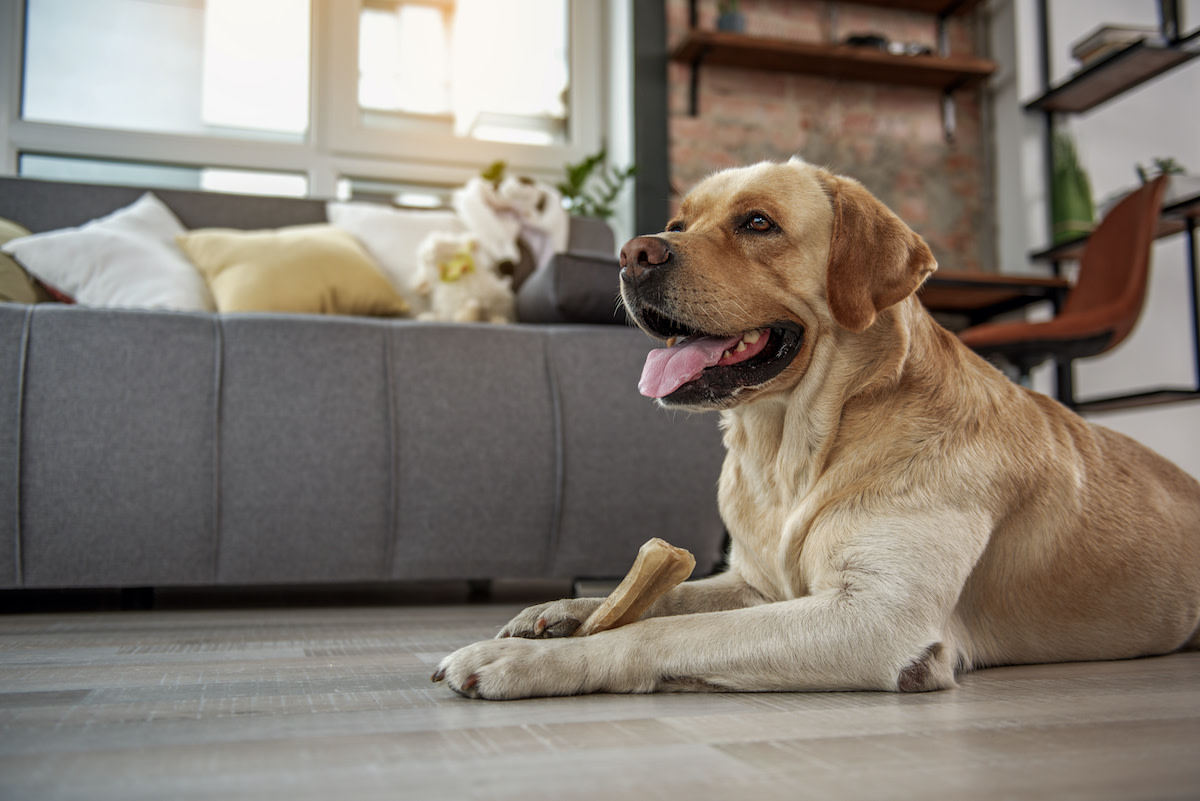Can Dogs Eat Potatoes? Why Certain Potatoes Are Bad for Dogs
Written by MasterClass
Last updated: Jun 7, 2022 • 4 min read
Dogs can generally eat fully cooked, plain potatoes in small quantities without negative consequences; however, your dog’s safety depends on the type of potato, the amount your pet eats, and other factors. Read on to better understand the implications for your furry friend.
Learn From the Best
Can Dogs Eat Potatoes?
Dog owners can feed small amounts of plain, cooked potatoes—never raw potatoes—to their pet. The potato plant is a member of the nightshade family, which contain solanine, a compound that is toxic to dogs. Therefore, consuming potatoes can result in high levels of toxicity in canines. Refrain from feeding even baked potatoes to your pet since potato skins or potato peels might contain traces of the toxins and also pose a choking hazard.
There are certain potatoes you can allow your dog to eat in low quantities. Raw or cooked sweet potatoes, for example, are not part of the nightshade plant family and are safe for your dog. Fruits and vegetables, however, should comprise less than ten percent of your pet's caloric intake, and potatoes should never replace dog food or kibble in your dog’s diet.
When introducing small portions of boiled potatoes to your dog, monitor them for signs of allergies or poisoning. It is best to research dietary guidelines or speak with your veterinarian before introducing potatoes or other human foods into your pet's diet.
Are Instant Mashed Potatoes Bad For Dogs?
Mashed potatoes are usually bad for dogs. Boxed garlic mashed potatoes, instant mashed potatoes, or microwaveable varieties of mashed potatoes have limited nutritional value and contain high amounts of sodium, sugar, and other seasonings. These ingredients can damage your dog's immune system, raise their blood sugar levels, and cause several health issues.
Common toppings for mashed potatoes, such as chives, butter, sour cream, and onion powder, are unsafe for dogs. Large amounts of salt can lead to sodium poisoning, while chives, onions, and other alliums can cause your dog to develop anemia. Some dog breeds are more lactose intolerant than others, but dairy products like butter in mashed potatoes could result in gastrointestinal distress for any dog.
3 Health Benefits of Sweet Potatoes for Dogs
Sweet potatoes, or yams, are significantly safer for your dog than white potatoes, which contain compounds that are toxic for dogs. If you choose to feed your dog sweet potatoes in moderation, here are a few of the potential health benefits your pet could enjoy:
- 1. Boosted immune system: Carotenoids are a type of antioxidant in sweet potatoes that might protect your dog's cells from damage and degeneration. Antioxidants could provide your dog with a level of protection against free radicals, potentially reducing your pet’s risk of developing cancers and cognitive disorders.
- 2. Improved joint health: Sweet potatoes contain potassium, magnesium, and other essential minerals. These minerals work with calcium in your dog's system to promote strong bones and joint health.
- 3. Increased energy: Sweet potatoes contain several essential vitamins that support your dog's energy levels and metabolism. These nutrients include vitamin A, vitamin B6, and vitamin C. Your pet’s dog food likely provides essential vitamins and minerals, too; however, small snacks of dog-safe fruits and vegetables can help supplement your dog's daily nutrition requirements.
3 Health Risks of Potatoes for Dogs
Consider some of the health problems connected to the canine consumption of potatoes:
- 1. Canine dilated cardiomyopathy: There is considerable debate about canine dilated cardiomyopathy, or DCM, which primarily affects the cardiac muscles and ventricles in a dog’s heart. Some experts link DCM to a grain-free diet consisting of potatoes, peas, lentils, and other vegetables. Until the US Food and Drug Administration releases more information about the connection between grain-free diets and DCM, concerned pet owners might choose to forgo a grain-free diet for their pup.
- 2. Oxalate and solanine poisoning: Potato skins and raw potatoes contain high levels of solanine and oxalates, compounds that damage a dog's neurotransmitters, heart, and digestive system. Common side effects resemble normal stomach upset, vomiting, or diarrhea, but this toxicity can also lead to seizures, cardiac arrest, or death.
- 3. Pancreatitis: Fried potatoes, potato chips, and french fries are cooked potatoes that are very unhealthy snacks for your canine companion. These potato treats are high in calories, sodium, and carbohydrates. These high-risk snacks can lead to weight gain and severe obesity. Obesity can put excess stress on your dog's joints and spine, and it can lead to a debilitating gastrointestinal disease known as pancreatitis. Common symptoms of pancreatitis include diarrhea, vomiting, and several other signs of an upset stomach.
Before Sharing With Your Pooch
Certain human foods can cause adverse reactions in canines, so always consult your veterinarian to determine whether it is safe to add these foods to your pet’s diet. This article is for educational and informational purposes and is not a substitute for medical or dietary advice.
Want to Learn More About Training the Goodest Boy or Girl?
Your dream of having a dog who understands words like “sit,” “stay,” “down,” and—crucially— “no” is just a MasterClass Annual Membership away. The only things you’ll need to train up a well-behaved pup are your laptop, a big bag of treats, and our exclusive instructional videos from superstar animal trainer Brandon McMillan.
